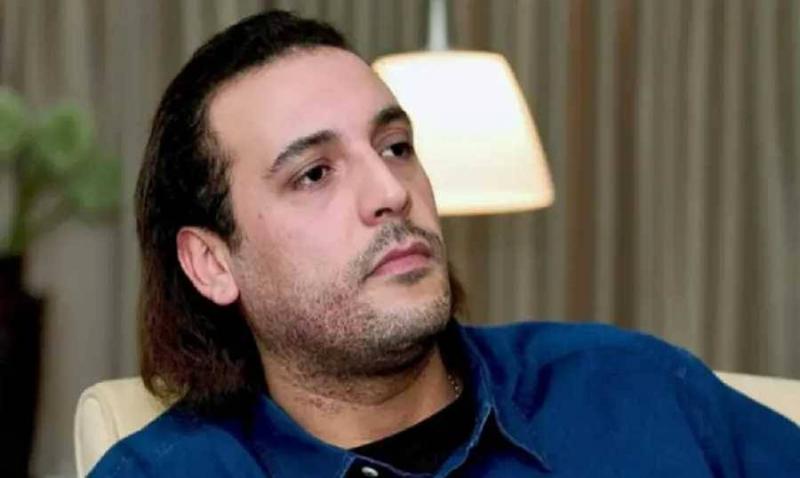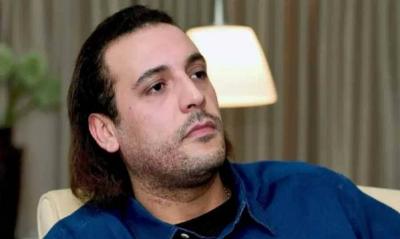The Lebanese-Libyan approaches regarding potential cooperation in the case of Hannibal Muammar Gaddafi, imprisoned in Lebanon for eight years, differ significantly. Libyan messages focus on the issue of releasing Hannibal and handing him over to his home country, while Lebanon presents a clear and non-negotiable precondition for his release: providing documented and clear information that defines the fate of Imam Musa al-Sadr and his companions, Sheikh Muhammad Yaqub and journalist Abbas Badreddin, who were kidnapped and have been missing in the capital, Tripoli, since the end of August 1978.
The newspaper Asharq Al-Awsat reported that last week, the Lebanese judiciary received a message from Libyan Justice Minister Halima Abdul Rahman expressing readiness to discuss Hannibal Gaddafi's case at the negotiating table and offer legal and humanitarian cooperation to reach a solution leading to Hannibal's release. A judicial source involved in Hannibal's case noted that the Libyan message "showed no willingness to reveal the fate of al-Sadr and his companions, as if Lebanese cooperation was sought without any return."
The source confirmed to Asharq Al-Awsat that the judicial investigator in the al-Sadr file, Judge Zahir Hamada, "will not release Hannibal without receiving the answers and clarifications that he possesses but refuses to divulge, which would facilitate closing the investigation and issuing an indictment." Voices in Libya opposing Hannibal's continued detention have been rising, echoed by international human rights organizations that regularly contact Lebanon, describing Hannibal as a "political prisoner," especially since the crime of kidnap and concealment of al-Sadr occurred when Hannibal was only two years old. However, the judicial source dismissed this justification and called for an end to its promotion, characterizing Hannibal as a "valuable treasure" who possesses significant information regarding this case.
The source said that the detainee "explicitly confessed before the judicial investigator that he knows 30 Libyan figures from his father's regime who were in positions of authority and involved in the kidnapping of al-Sadr, also admitting that al-Sadr and his companions did not leave Libya, contrary to the official Libyan narrative which claimed that the Imam and his companions left Tripoli for Rome and disappeared there, and he recognized that al-Sadr was placed under house arrest in the Janzour area."
The source emphasized that "al-Sadr and his companions arrived in Tripoli on August 25, 1978, stayed at the Beach Hotel, and remained there for six days. On the morning of August 31, a car arrived to take them from the hotel, claiming to transport them for a meeting with Muammar Gaddafi, and from that moment, they disappeared." The Lebanese judicial source added, "A few hours after the kidnapping, elements of the Libyan intelligence arrived at the Beach Hotel and took al-Sadr’s and his companions' clothes and passports. Hannibal identified the two individuals who donned the Imam al-Sadr and Sheikh Yaqub’s religious attire, as well as another civilian who later boarded a flight with Alitalia and transferred from Tripoli to Rome using the kidnapped individuals' passports, checked into a hotel, and the next day left the hotel with their passports and clothes, returning to Tripoli with their original passports."
Nothing seems to deter judicial investigator Zahir Hamada regarding Hannibal's continued detention; he appears comfortable with holding him as long as the latter is withholding important information and refuses to disclose it unless released. There are growing suspicions regarding Hannibal's direct role in the tragedy of al-Sadr's concealment. The judicial source revealed that "Libyan rebels, following the fall of Muammar Gaddafi’s regime, entered Hannibal's residence in Tripoli and confiscated personal items, including a tablet containing two files: the first included family photos and personal information, while the second contained documents on political prisons and the names of detained politicians, as well as interrogation records conducted by Libyan intelligence with opponents of Gaddafi’s regime and images of their torture. The second file contains something related to al-Sadr’s case that illustrates Hannibal’s personal animosity towards him, emphasizing that the information device within the Internal Security Forces had obtained, by its own means, a flash memory containing all of this information and handed it to the judicial investigator." The source explained that Judge Hamada "confronted Hannibal with this information, but he refused to comment or answer."
Furthermore, the source indicated that Hannibal "informed the judicial investigator that Abdessalam Jalloud was criminally responsible for concealing al-Sadr while his father (Muammar Gaddafi) was financially responsible and that he was ready to pay compensation to al-Sadr's family as occurred in the Lockerbie aircraft deal. This is what the Libyan side hints at repeatedly whenever communications are resumed," stressing that "there are leaders in the new Libyan regime who wish to spare the Gaddafi family from responsibility for this crime, perhaps in anticipation of their return to power."
Those concerned with al-Sadr's case believe that "Hannibal's detention represents a valuable bargaining chip, and Lebanon is not prepared to forfeit it unless definitive answers are received regarding al-Sadr and his companions' whereabouts." The source acknowledged that the former Libyan Transitional Council "showed limited cooperation in this case, but its endeavor abruptly stalled." The source mentioned a noteworthy incident, stating that "the previous Libyan leadership, headed by Mustafa Abdul Jalil, discovered the body of a person placed in a freezer after the fall of Gaddafi's regime and believed it belonged to Imam al-Sadr, so they transported the body to Sarajevo, where very modern laboratories are located. Al-Sadr's family was asked to go there for identification, but upon conducting DNA tests, the results were not a match. It later turned out that the body belonged to former Libyan Minister Mansour Kikhia, who had a fallout with Gaddafi and sought refuge in Egypt, but Libyan intelligence succeeded in kidnapping him from Egypt and transporting him to Libya, where he was imprisoned and died in custody." The source recalled that "Kikhia's kidnapping sparked a significant crisis and nearly led to severing relations between the two countries, particularly when the late Egyptian President Hosni Mubarak threatened military action against Libya, to which Gaddafi responded by threatening to expel all Egyptians working in his country."




